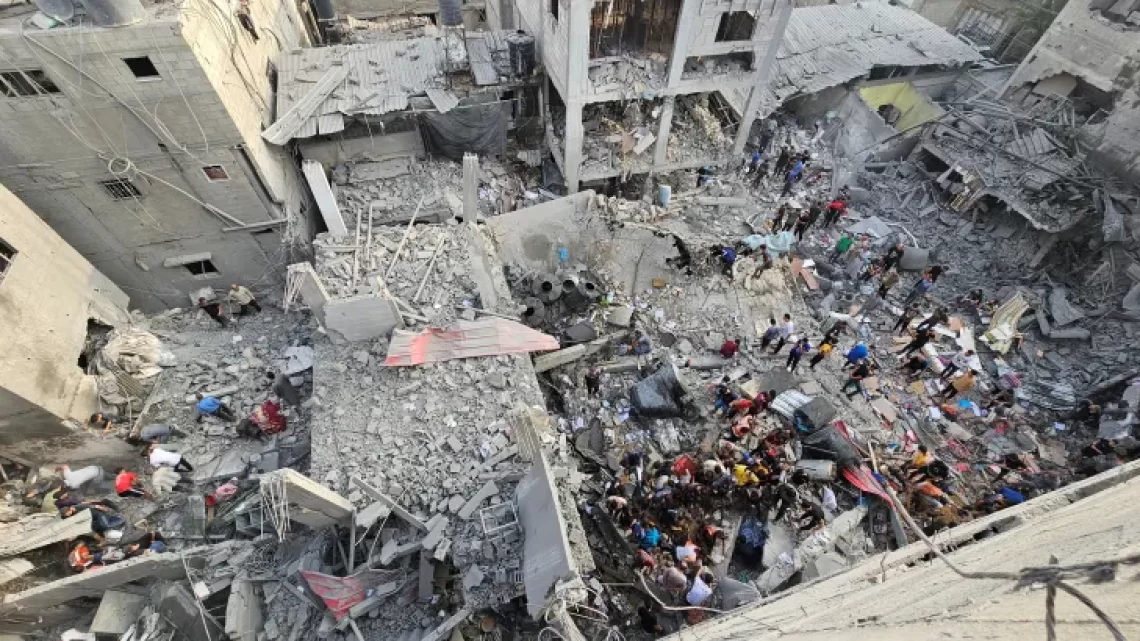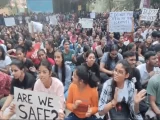
UN raises Concerns over Escalating Violence by Israeli Settlers against West Bank Palestinians amid ongoing Gaza Conflict
November 2, 2023The ongoing conflict between Israel and Gaza has led to a devastating human toll, with nearly 8,000 men, women, and children losing their lives. Simultaneously, Israeli settlers have been displacing over 820 Palestinians from the occupied West Bank, exacerbating the dire situation in the besieged enclave. The United Nations Office for the Coordination of Humanitarian Affairs (OCHA) reports a significant rise in Israeli settler violence, with daily incidents increasing from an already high average of three per day in 2023 to seven per day.
During this period, OCHA documented 171 settler attacks on Palestinians, resulting in 26 separate casualty incidents, damage to 115 Palestinian properties, and approximately 30 reported incidents involving both property damage and casualties. Instances of harassment, trespassing, and intimidation, though prevalent, are not accounted for in the official reporting, yet they exert additional pressure on Palestinians to abandon their land.
The influx of Israeli settlers into the West Bank, which has been under Israeli occupation since 1967, threatens the prospects of a peaceful two-State solution to the long-standing conflict. Access restrictions, typically enforced by Israeli authorities, have intensified across the West Bank, including East Jerusalem. These restrictions are particularly severe in areas near Israeli settlements and in the so-called “Seam Zone,” the Palestinian territory isolated by Israel’s 712-kilometer-long barrier in the West Bank. Settlers have also imposed movement limitations, blocking access roads to Palestinian communities and severely curtailing their access to essential services and livelihoods. In some instances, settlers have damaged water resources relied upon by herding communities. Humanitarian assistance services, such as health and education, have ceased due to the escalated restrictions.
OCHA highlights the use of firearms by settlers to intimidate Palestinians, with more than one in every three settler-related incidents since October 7 involving settlers using firearms to threaten Palestinians, including by opening fire. In one disturbing incident on October 12, eight households comprising 51 people were forced to leave the Shihda WaHamlan herding community in Nablus in the northern West Bank after settlers threatened them at gunpoint, warning that they would kill them and set their tents on fire during the night.
Furthermore, OCHA notes that in almost half of these cases, Israeli security forces either accompanied or actively supported the attackers. Many of these incidents led to confrontations between Israeli forces and Palestinians, resulting in the loss of life and numerous injuries. As of the end of October, eight Palestinians were directly killed by settlers, and extensive damage or destruction was caused to 24 residential structures, 40 farming structures, 67 vehicles, and over 400 trees and saplings.
Simultaneously, Israeli strikes on Gaza have claimed the lives of over 8,500 Palestinians, including 3,500 children, according to the latest estimates. The conflict has also led to the displacement of an estimated 1 million people from the northern half of Gaza, as reported by the United Nations. Calls for an end to Israel’s bombardment of Gaza have been growing, especially as Israel’s military operations have intensified in recent days.
To summarize, the Israel-Gaza conflict has resulted in a devastating human toll, with a significant loss of life in both Gaza and the West Bank. Israeli settler violence and restrictions on Palestinian movement and access to essential services have further exacerbated the crisis, threatening the prospects of a peaceful resolution to the long-standing conflict. The use of firearms by settlers, often with the support of Israeli security forces, has led to a significant number of casualties and damage to Palestinian property. The situation remains highly volatile and in need of urgent international attention and intervention to prevent further loss of life and suffering on both sides.

